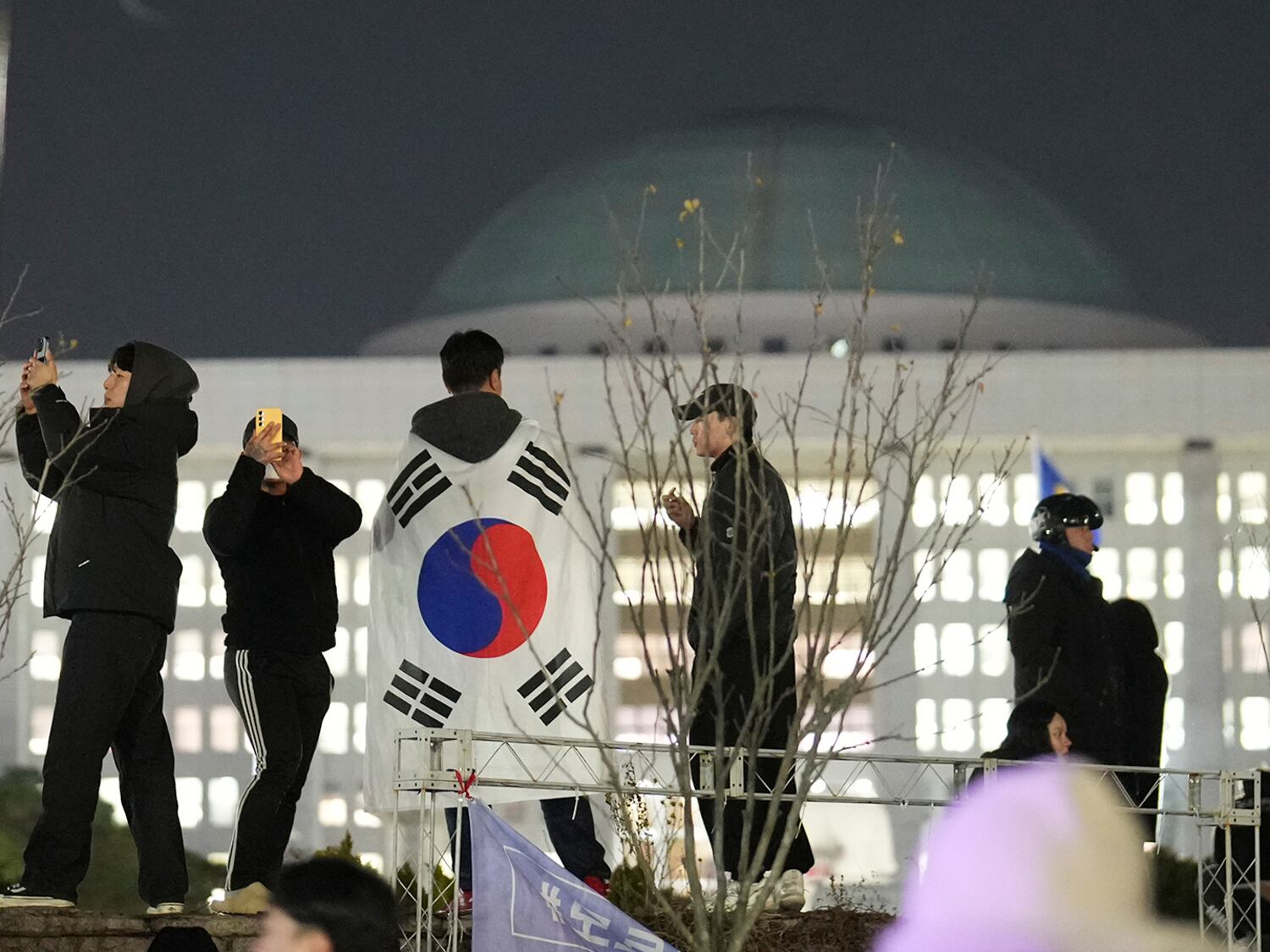Martial law in South Korea, US-China prisoner swap: RFA Insider #21
How the martial law order in 2024 compares with 1980 illustrates how South Korea has become a developed democracy.

RFA Insider tackles the biggest headlines coming out of Asia this week with back-to-back interviews addressing martial law in South Korea and the China-U.S. prisoner swap.
Off Beat
On December 3, South Korean President Yoon Suk Yeol shocked the country by declaring emergency martial law to counter “threats from North Korea” and “anti-state activities” by the domestic opposition. Following the announcement, a growing crowd of protestors gathered outside the National Assembly in Seoul. A short three hours later, the National Assembly voted to lift martial law, ending what had become a very tumultuous Tuesday night and Wednesday morning.
Jun You, a media producer with RFA Korean, joined Eugene and Amy in the studio to explain why Yoon declared martial law, the basis of his claims of a threat from Pyongyang and how the peaceful resolution of this week’s martial law order compares to the last time South Korea experienced martial law in 1980. Jun also shares how North Korean officials in China reacted to South Korean lawmakers overturning Yoon’s martial law order.
Podcast Free Asia
In this week’s Podcast Free Asia, Amy and Eugene address comments and queries from listeners regarding Hong Kong mogul Jimmy Lai’s trial. Tune in to hear listeners speculate about whether Lai will be prosecuted, Hong Kong’s sovereignty and who exactly is funding Radio Free Asia (spoiler: it’s USAGM).
The Rundown
Reporter Tara McKelvey of RFA’s Investigative team returns to the podcast to talk about the recent and rare “spy swap.” Last week, the U.S. National Security Council announced that three American citizens – two convicted of espionage, one of drug-related charges – had come home. In turn, China’s foreign ministry reported that four Chinese citizens – two convicted of espionage – had also been returned.
In the following days, more details of the deal were revealed. The U.S. State Department downgraded its travel advisory on China from Level 3 (“reconsider travel”) to Level 2 (“exercise extreme caution”). Moreover, three Uyghurs, including the mother of high-profile Uyghur activist Nury Turkel, were quietly permitted to depart China for the United States.
Tara addresses the balancing act and boundaries of such exchanges, what the swap could signal about future dealings between the two countries and the faces behind the names in the news.
This article has been sourced from various publicly available news platforms around the world. All intellectual property rights remain with the original publishers and authors. Unshared News does not claim ownership of the content and provides it solely for informational and educational purposes voluntarily. If you are the rightful owner and believe this content has been used improperly, please contact us for prompt removal or correction.











